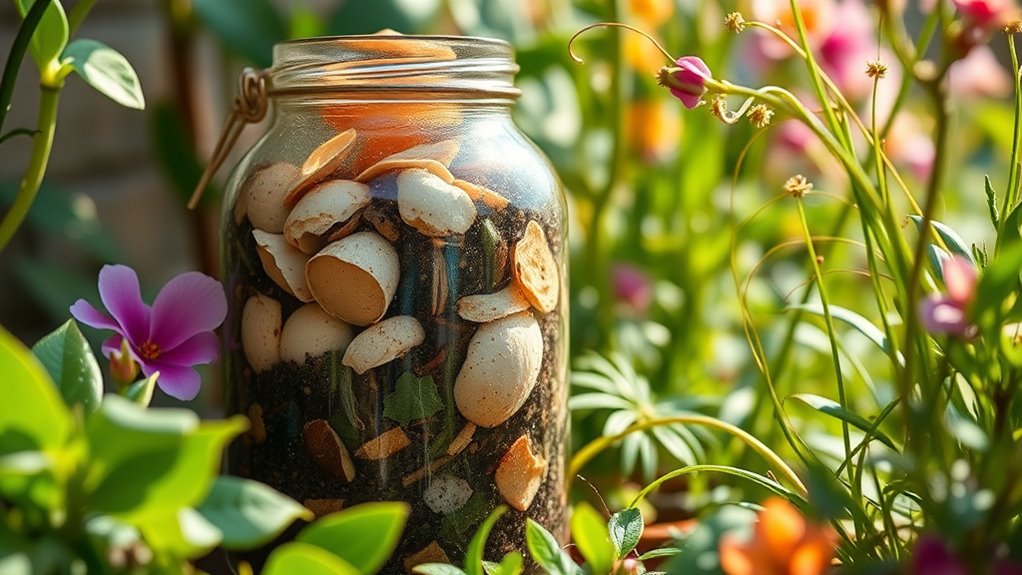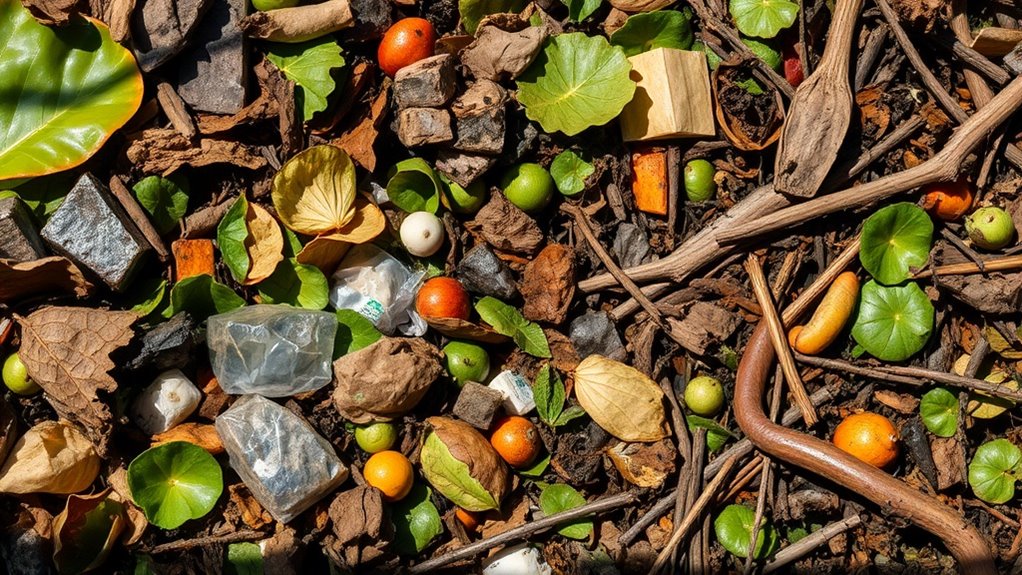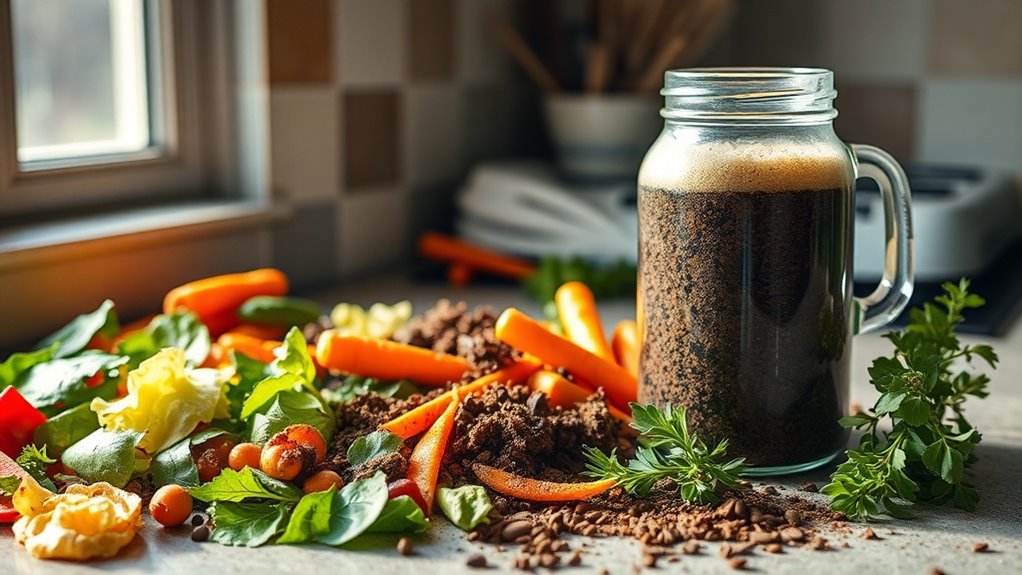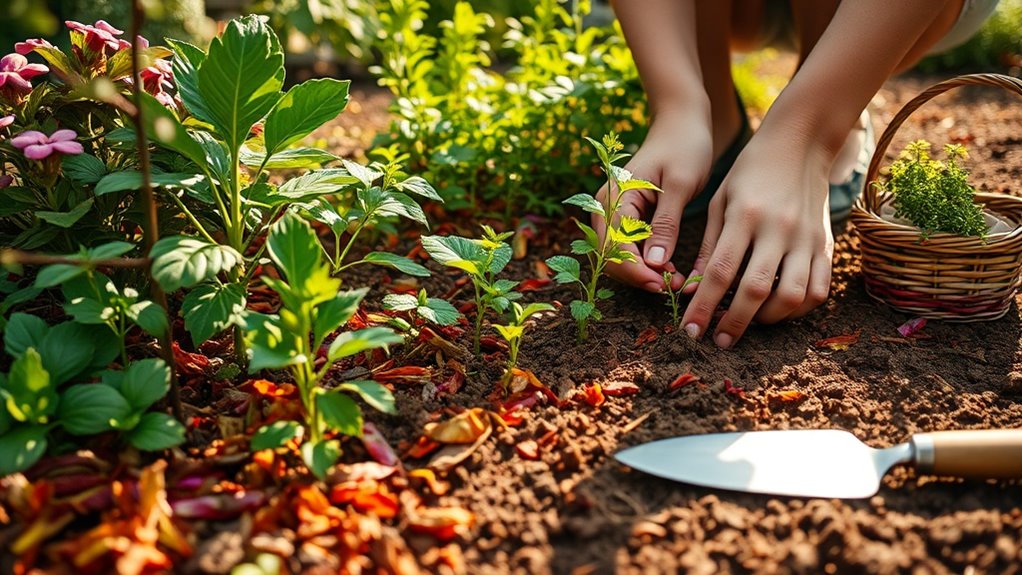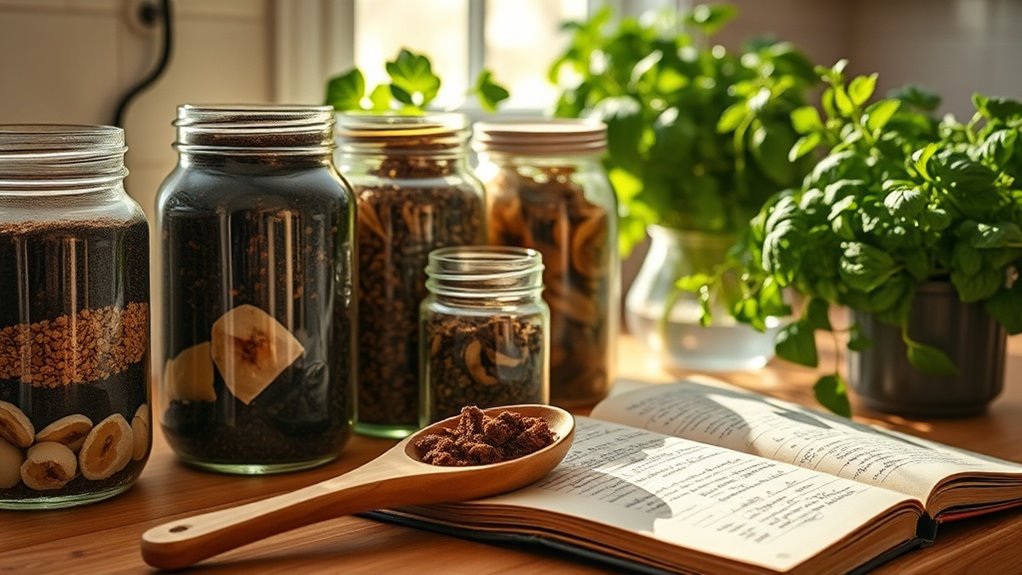This Unexpected Kitchen Scrap Is My Garden’s Secret Weapon
Did you know that nearly 40% of food waste ends up in landfills? Instead of tossing those banana peels into the trash, consider their hidden potential for your garden. These kitchen scraps can enrich your soil and boost your plants’ growth. Interested in how to transform this waste into a nutrient-rich fertilizer? Let’s explore the surprising benefits and simple methods to unlock your garden’s full potential with this unexpected secret weapon.
The Surprising Benefits of Kitchen Scraps
When you peel your carrots or chop your onions, you might think those scraps belong in the compost bin, but they actually hold surprising benefits for your garden.
Kitchen scrap fertilizer enriches your soil, adding nutrients that help plants thrive. Instead of tossing them away, consider using these scraps to enhance moisture retention and promote healthier growth, making your garden flourish beautifully. In fact, many kitchen scraps can serve as homemade fertilizer that significantly boosts soil quality.
Which Kitchen Scraps Are Best for Your Garden
While many people toss kitchen scraps without a second thought, some of these leftovers can become your garden’s best allies.
Items like coffee grounds enrich your soil with nitrogen, while eggshells provide essential calcium.
Banana peels boost potassium levels, and vegetable scraps can attract beneficial worms. Additionally, using banana peels as natural fertilizer can also help improve overall plant growth and health in your garden.
How to Prepare and Use Kitchen Scraps as Fertilizer
Many kitchen scraps are more than just waste; they can be transformed into powerful fertilizers for your garden.
Start by collecting items like vegetable peels, coffee grounds, and eggshells. Chop them into smaller pieces to speed up decomposition.
Mix these scraps into your compost pile or directly into the soil. This enriches nutrients, boosts microbial activity, and helps your plants thrive beautifully. Additionally, banana peels are particularly rich in potassium and can significantly enhance the health of your garden.
Integrating Kitchen Scraps Into Your Garden Routine
Integrating kitchen scraps into your garden routine can transform both your plants and your waste management approach.
Start by collecting vegetable peels, eggshells, and coffee grounds. Chop them into smaller pieces for quicker decomposition.
Layer these scraps in your compost bin or directly in your garden beds. Additionally, scraps such as common household items contribute essential nutrients to your compost, promoting better plant growth. Soon, you’ll notice healthier plants and a meaningful reduction in kitchen waste.
Your garden will thrive!
The Science Behind Soil Enrichment With Kitchen Scraps
Here’s how they work their magic:
-
Nutrient-rich: They add vital nutrients like nitrogen, phosphorus, and potassium.
-
Microbial boost: Scraps foster beneficial microbes, enhancing breakdown.
-
Water retention: They improve soil’s moisture-holding capacity.
-
pH balance: Kitchen scraps can help stabilize soil acidity.
These factors together create fertile ground for your plants! Additionally, utilizing techniques from fast composting can significantly accelerate the transformation process of your kitchen scraps into rich compost.
Success Stories: Transforming Gardens With Kitchen Scrap Fertilization
Transforming your garden using kitchen scraps isn’t just a concept—it’s a proven success story for countless gardeners. Many have seen their soil thrive and plants flourish. By recycling organic waste, you create nutrient-rich compost that delivers amazing results. Below, check out some common kitchen scraps and their garden benefits:
| Kitchen Scrap | Benefits |
|---|---|
| Coffee Grounds | Enhances soil structure |
| Eggshells | Boosts calcium levels |
| Vegetable Peels | Adds nutrients and moisture |
Eggshells specifically provide a natural fertilizer that enhances soil health and promotes plant growth effectively and naturally.

